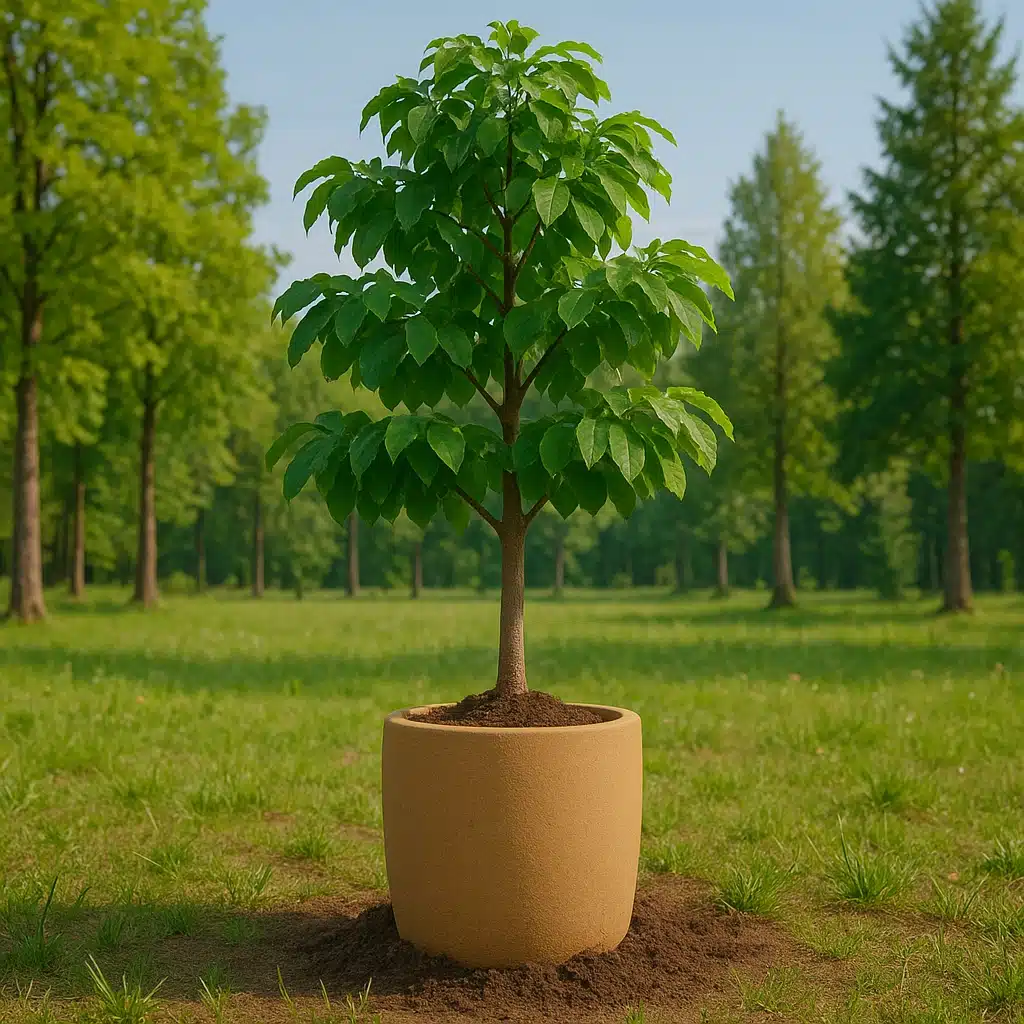Biodegradable tree-growing funeral urns are increasingly chosen by families seeking a natural, lasting tribute. This type of urn, like TREE-URN, is generally treated as a form of ash scattering.
Why is a tree urn considered scattering?
A biodegradable urn breaks down over a few years. The ashes gradually blend with the soil and the tree’s roots, then diffuse into the ground. In many countries, that process fits the legal definition of scattering rather than a traditional burial.
European legislation: rules vary
Across Europe, regulations differ from one country to another—and sometimes from one region to another. Before using an eco-friendly urn, always consult your city hall or the competent local authority.
Comparative overview of regulations in Europe
| Country | Main rules for scattering | Notes for tree urns |
|---|---|---|
| France | Scattering is permitted in nature (forest, mountains, sea) but forbidden on public thoroughfares or in private gardens without authorization. | Possible in woodland memorials or natural cemeteries. Declaration required to the town hall of the deceased’s birthplace. |
| Spain | Rules set by each autonomous community. Scattering may be allowed at sea or in the mountains with authorization. | Some regions accept interment in private woodland if registered as a funeral area. |
| Germany | Strict: ashes must be kept in a cemetery or approved site. | Tree urns allowed only in approved Friedwälder (memorial forests). |
| Austria | Strict: in most Länder, ashes must remain in a cemetery. | Biodegradable urns typically limited to natural/woodland cemeteries that are officially approved. |
| Italy | Regional regulation. Scattering allowed in authorized natural areas or at sea with municipal approval. | Some regions offer “memory parks” suitable for tree urns. |
| Czech Republic | Scattering in nature permitted with the landowner’s or local authority’s consent. | Memorial forests accepting biodegradable urns are developing. |
| Hungary | Scattering permitted in nature or at sea with municipal authorization. | Pilot “green cemetery” projects can accept tree urns. |
| United Kingdom | Flexible: scattering allowed at sea, on rivers, or on private land with the owner’s consent. | Tree urns accepted on private land or in dedicated “green burial” sites. |
| Netherlands | Scattering on private land with permission, or in municipal designated areas. | Accepted in certain eco-friendly memorial parks. |
| Belgium | Varies by region (Flanders, Wallonia, Brussels). Scattering possible in natural areas or gardens of remembrance. | Some municipalities provide wooded areas for biodegradable urns. |
| Switzerland | Cantonal law. Scattering often allowed in nature; private land requires consent. | Memorial forests are widespread and well suited to tree urns. |
Memorial place or simple scattering?
Choosing an eco-friendly tree urn doesn’t automatically create an official place of remembrance. A permanent location exists only if:
-
the urn is interred on private land with the required legal permissions, or
-
it’s placed in a dedicated area (woodland memorial, green cemetery).
TREE-URN tip: Regulations can change. Always confirm with your local authority before proceeding to ensure compliance with local funeral legislation.


0 Comments